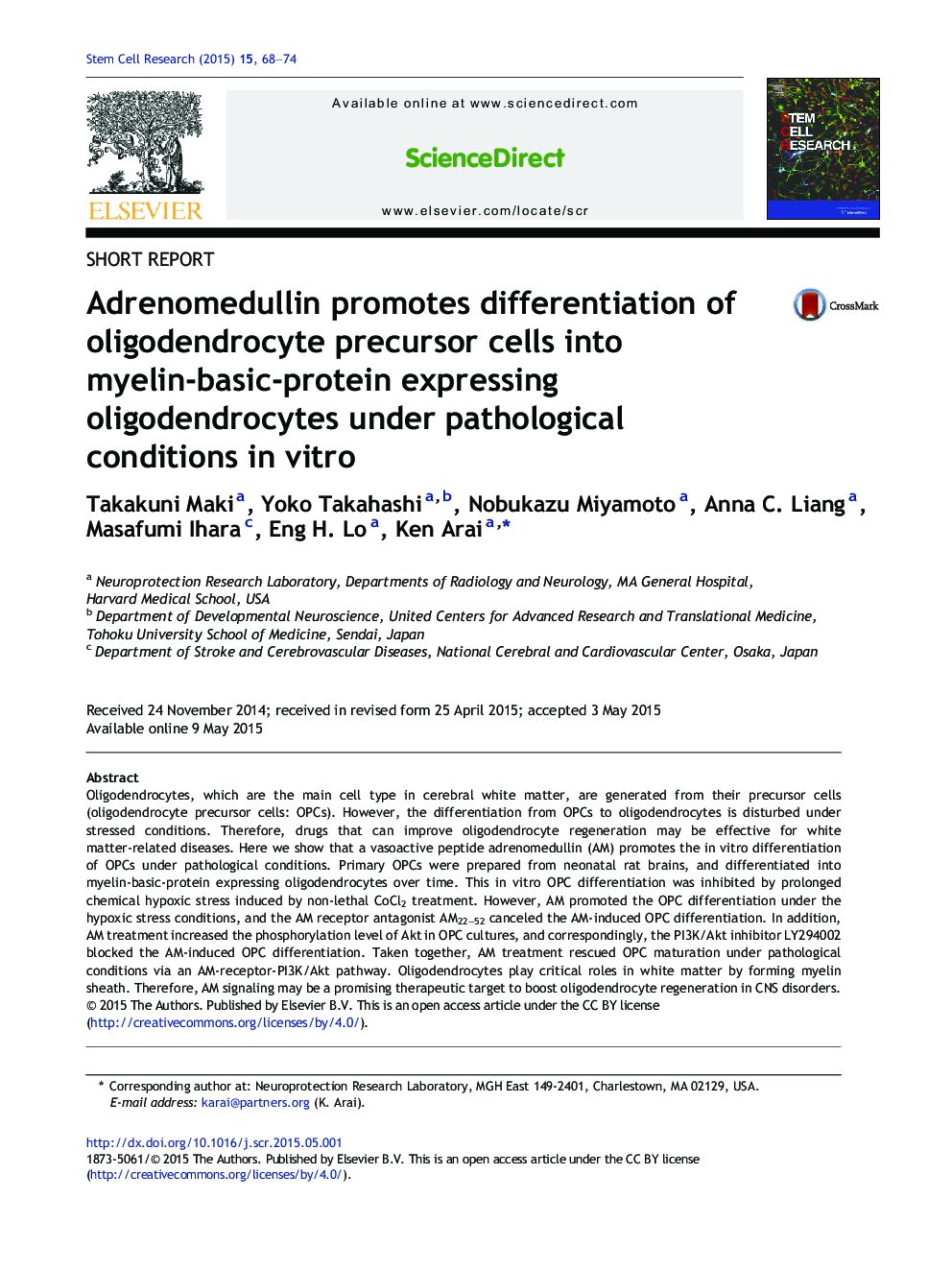| Article ID | Journal | Published Year | Pages | File Type |
|---|---|---|---|---|
| 2094084 | Stem Cell Research | 2015 | 7 Pages |
•A vasoactive peptide adrenomedullin (AM) promoted OPC differentiation under pathological conditions in vitro.•AM treatment increased phosphorylation level of Akt in OPC cultures.•AM receptor antagonist AM22–52 and PI3K inhibitor LY294002 canceled AM-induced OPC differentiation.
Oligodendrocytes, which are the main cell type in cerebral white matter, are generated from their precursor cells (oligodendrocyte precursor cells: OPCs). However, the differentiation from OPCs to oligodendrocytes is disturbed under stressed conditions. Therefore, drugs that can improve oligodendrocyte regeneration may be effective for white matter-related diseases. Here we show that a vasoactive peptide adrenomedullin (AM) promotes the in vitro differentiation of OPCs under pathological conditions. Primary OPCs were prepared from neonatal rat brains, and differentiated into myelin-basic-protein expressing oligodendrocytes over time. This in vitro OPC differentiation was inhibited by prolonged chemical hypoxic stress induced by non-lethal CoCl2 treatment. However, AM promoted the OPC differentiation under the hypoxic stress conditions, and the AM receptor antagonist AM22–52 canceled the AM-induced OPC differentiation. In addition, AM treatment increased the phosphorylation level of Akt in OPC cultures, and correspondingly, the PI3K/Akt inhibitor LY294002 blocked the AM-induced OPC differentiation. Taken together, AM treatment rescued OPC maturation under pathological conditions via an AM-receptor-PI3K/Akt pathway. Oligodendrocytes play critical roles in white matter by forming myelin sheath. Therefore, AM signaling may be a promising therapeutic target to boost oligodendrocyte regeneration in CNS disorders.
